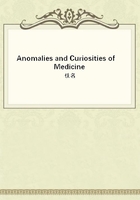
第14章
Marvelous to relate, there are on record several cases of twins being born to a child mother. Kay reports a case of twins in a girl of thirteen; Montgomery, at fourteen; and Meigs reports the case of a young girl, of Spanish blood, at Maracaibo, who gave birth to a child before she was twelve and to twins before reaching fourteen years.
In the older works, the following authors have reported cases of pregnancy before the appearance of menstruation: Ballonius, Vogel, Morgagni, the anatomist of the kidney, Schenck, Bartholinus, Bierling, Zacchias, Charleton, Mauriceau, Ephemerides, and Fabricius Hildanus.
In some cases this precocity seems to be hereditary, being transmitted from mother to daughter, bringing about an almost incredible state of affairs, in which a girl is a grandmother about the ordinary age of maternity. Kay says that he had reported to him, on "pretty good" authority, an instance of a Damascus Jewess who became a grandmother at twenty-one years. In France they record a young grandmother of twenty-eight. Ketchum speaks of a negress, aged thirteen, who gave birth to a well-developed child which began to menstruate at ten years and nine months and at thirteen became pregnant; hence the negress was a grandmother at twenty-five years and nine months. She had a second child before she was sixteen, who began to menstruate at seven years and six months, thus proving the inheritance of this precocity, and leaving us at sea to figure what degree of grandmother she may be if she lives to an advanced age. Another interesting case of this nature is that of Mrs. C., born 1854, married in 1867, and who had a daughter ten months after. This daughter married in 1882, and in March, 1883, gave birth to a 9-pound boy. The youthful grandmother, not twenty-nine, was present at the birth. This case was remarkable, as the children were both legitimate.
Fecundity in the old seems to have attracted fully as much attention among the older observers as precocity. Pliny speaks of Cornelia, of the family of Serpios, who bore a son at sixty, who was named Volusius Saturnius; and Marsa, a physician of Venice, was deceived in a pregnancy in a woman of sixty, his diagnosis being "dropsy." Tarenta records the history of the case of a woman who menstruated and bore children when past the age of sixty. Among the older reports are those of Blanchard of a woman who bore a child at sixty years; Fielitz, one at sixty;Ephemerides, one at sixty-two; Rush, one at sixty; Bernstein, one at sixty years; Schoepfer, at seventy years; and, almost beyond belief, Debes cites an instance as taking place at the very advanced age of one hundred and three. Wallace speaks of a woman in the Isle of Orkney bearing children when past the age of sixty. We would naturally expect to find the age of child-bearing prolonged in the northern countries where the age of maturity is later. Capuron cites an example of child-birth in a woman of sixty; Haller, cases at fifty-eight, sixty-three, and seventy;Dewees, at sixty-one; and Thibaut de Chauvalon, in a woman of Martinique aged ninety years. There was a woman delivered in Germany, in 1723, at the age of fifty-five; one at fifty-one in Kentucky; and one in Russia at fifty. Depasse speaks of a woman of fifty-nine years and five months old who was delivered of a healthy male child, which she suckled, weaning it on her sixtieth birthday. She had been a widow for twenty years, and had ceased to menstruate nearly ten years before. In St. Peter's Church, in East Oxford, is a monument bearing an inion recording the death in child-birth of a woman sixty-two years old. Cachot relates the case of a woman of fifty-three, who was delivered of a living child by means of the forceps, and a year after bore a second child without instrumental interference. She had no milk in her breasts at the time and no signs of secretion. This aged mother had been married at fifty-two, five years after the cessation of her menstruation, and her husband was a young man, only twenty-four years old.
Kennedy reports a delivery at sixty-two years, and the Cincinnati Enquirer, January, 1863, says: "Dr. W. McCarthy was in attendance on a lady of sixty-nine years, on Thursday night last, who gave birth to a fine boy. The father of the child is seventy-four years old, and the mother and child are doing well." Quite recently there died in Great Britain a Mrs. Henry of Gortree at the age of one hundred and twelve, leaving a daughter of nine years.
Mayham saw a woman seventy-three years old who recovered after delivery of a child. A most peculiar case is that of a widow, seventy years old, a native of Garches. She had been in the habit of indulging freely in wine, and, during the last six months, to decided excess. After an unusually prolonged libation she found herself unable to walk home; she sat down by the roadside waiting until she could proceed, and was so found by a young man who knew her and who proposed helping her home. By the time her house was reached night was well advanced, and she invited him to stop over night; finding her more than affable, he stopped at her house over four nights, and the result of his visits was an ensuing pregnancy for Madame.
Multiple births in the aged have been reported from authentic sources. The Lancet quotes a rather fabulous account of a lady over sixty-two years of age who gave birth to triplets, making her total number of children 13. Montgomery, Colomb, and Knehel, each, have recorded the birth of twins in women beyond the usual age of the menopause, and there is a case recorded of a woman of fifty-two who was delivered of twins.